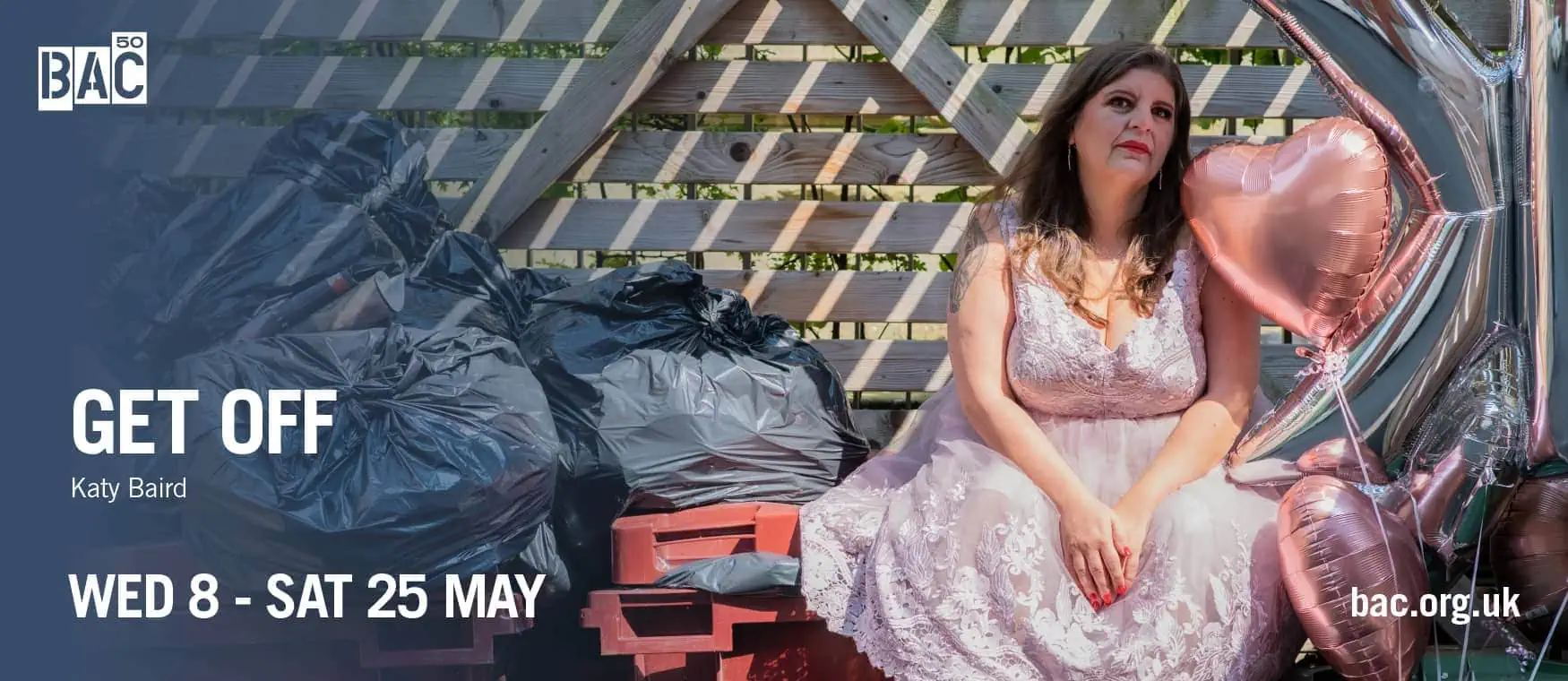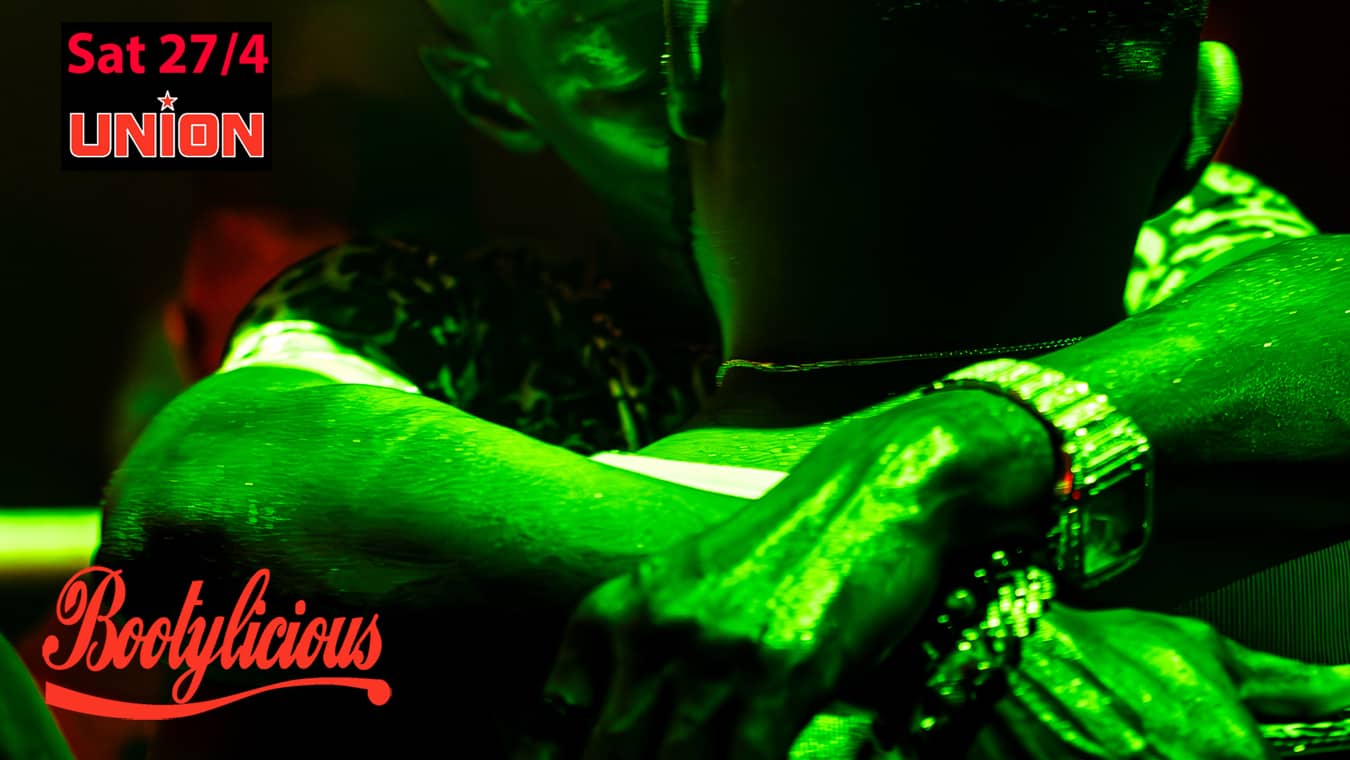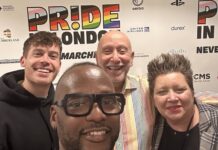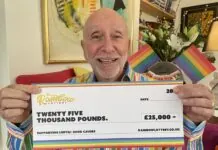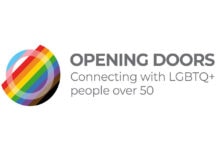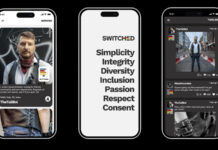Words by Dylan B Jones
For this year’s Pride cover, we decided to storm around Oxford Street with Glamrou.
Unapologetically queer and almost insultingly imaginative, Glamrou’s interests include debates on modern preconceptions of gender, the structures of social and racial privilege, and sea monkeys. But with lovely shoes.
Glamrou is a formidable intellectual powerhouse. Having blossomed in the fiercely acedemic and aggressively caucasian Cambridge, they’ve since stormed out into the national sociopolitical discourse, with confrontational and thoughtful essays and articles in the mainstream press under their muggle name Amrou Al-Kadhi.
They’re also one fifth of drag girl group DENIM, who’ve received critical acclaim for their side-splitting parodies of famous pop culture figures, and frenetic, colourful interpretations of famous musical numbers.
One thing’s for sure – Glamrou always has a lot to say. Head to their Independent author page and pack a lunch! Dylan B Jones had a chat with them about Pride, religion, queerness and the relationship between all three.
Hey Glamrou! So first, tell me about your relationship with the Middle East. Do you ever go back?
It’s the death penalty for being gay in Dubai, which is where my family live. That’s not really enforced, but it theoretically could be. When I do go, it’s more the everyday general policing on the street that unsettles me. I start to feel really paranoid and really self-conscious. But I mean, I do love the Middle East, don’t get me wrong, it’s where I’m from.
So even if it’s not being enforced there and then, obviously those laws still have a mental impact.
It’s sort of like…Seaworld trainers always knew that at any point, the whales could attack them. That’s my experience of being in Dubai.
And what’s it like to be an LGBT Middle Eastern person in the UK right now?
I always say ‘too gay for the Middle East and too Middle Eastern for gays’. You live in this between space where you can’t be there with your family or your country of origin, because it’s not safe. But similarly, so many spaces here are so white. I’ve been to some big drag nights and I’m like ‘oh my god, it is SO white in here.’ So when I’m in the Middle East, I miss all my gay friends, and when I’m here and I go to gay clubs, I miss all my Middle Eastern friends.
What other issues are there with that race disparity?
I find that people who dominate the LGBT media tend to be white. When you think about The Guardian and lots of other places. And they’re often writing about racism and I’m a bit like…hmm…
Ah. Do you think white people writing about racism is problematic?
Not always. It should be a labour for everyone, and I support that. I’ve definitely found that a lot of white gay men in the media, who write about racism and its problems, don’t actually do anything in real life to tackle racism. They’ll discuss it publicly, but then I’ll see racism actually happening in front of me and that person ignores it. I’ve seen that happen a lot. I often feel like a bit of a trophy for the white left. Like, ‘oh great, here’s a drag queen person of colour! Let’s put a picture of them on our thing!’
You talk a lot about this stuff in your writing. Have you received criticism for that?
It’s really bizarre to me that with my Independent column, whenever I critique Britain, that elicits the worst level of death threats. ‘How DARE you be a person of colour critiquing Britain! You’re lucky to be here!’ And I’m like A) my parents were refugees from Iraq because of Saddam. They’d be dead otherwise. B) I can’t live there. So I’m not THAT lucky to be here.
It’s this or death.
Exactly. Or at least deep unhappiness. And also, I provide a lot in Britain! I pay my taxes! I sometimes catch myself trying to prove to people that I deserve to be here. That’s why I think I sometimes work too hard.
Because you feel the need to justify being here?
Yeah, otherwise people might think I shouldn’t be here. I also think that’s quite a gay condition. You’ve been taught to think you’re worthless, so you become overambitious. The Velvet Rage complex. Compensating for your initial failing. As a person of colour, I’m always like ‘I need to write another piece, otherwise you’ll erase me and you won’t know that I’m here.’
Do you think that drive can be good as well though?
When I was 10 and I realized I was gay…you already start mentally preparing for your exit. You start to really calibrate yourself against everybody else. It was traumatic – god it was traumatic – but now that I’m on the other side of it, it’s like I’ve escaped. I have my own life, my own money and I have my own career. A lot of my cousins haven’t done that. And I think because they’re straight, they didn’t feel like they had to. So I am very grateful, in that way.
I inherently like Pride. It’s something I really practise, every day. Especially as a drag queen. I have this thing where I need someone to know that I’m queer every single day. I try to make sure that that happens. All of Oxford Street knew today. But I do get annoyed when I see certain brands that have never shown me solidarity, and suddenly claim to be allies. Ok, you have the limp flag inside your shop, but why don’t you actually give some of your proceeds to an LGBT charity? It’s also so secular. It makes me a little bit worried, that during Pride, the West feels very pleased with itself for being ‘the bastion’ of LGBT equality. Corporations basically mean capitalism. I feel like now, people think capitalism is good for gay people. It actually wasn’t until quite recently. Capitalism is inherently about systemic violence to people of colour, women’s bodies, queer people…but it’s dressed up as individual liberty.
Well it’s because in the last decade or so, maybe even more recently, being gay has become ‘cool’.
Yeah. I see it all the time. And I’m very aware of the caché of my identity at the moment. I develop TV and film stuff and I’ve had so many people ringing me and going “give us something gay and Muslim!” And I’m like ok, you’ve cottoned on to some sort of trend here. But I’ve been this my entire life and I will continue to be it. It’s not a phase.
It’s not like you just appeared out of thin air in 2016.
Yeah like in Transformers when they just emerge. Someone once said to me “You’re so NOW!” And I felt really upset. I was like “Does that mean I was once…then?” In terms of Pride, I do think we’re in a privileged position to be able to even debate it. And I think debate is important. Now that we’re allowed to debate it, let’s discuss it. I do think there’s a link between the Western secularism of pride, and people thinking that’s acceptable. I once went to a drag night where the person on stage in front of loads of people yelled “FUCK RELIGION.” Everyone was like “WOOO!” And I thought “Hmm, that’s actually not what this should be.”
Life’s not that straightforward is it.
I actually believe religion is quite queer, at its core. If you divorce the ideological restraints of it and look at the texts, there are some amazing moral guidelines on community and family, and not having greed. All the queer Muslims I talk to, say that the Quran was the first thing they read when they were coming out, for support. Families weren’t supportive but the Quran was. For me, Allah is also quite non-binary. Flows through everyone and doesn’t have a fixed gender. I was raised very Muslim, until I was thirteen. And then I stopped. That was quite a severe break for me.
Did you tell your family?
Yes. I said “I don’t want to do this anymore.”
And how were they with that?
Age thirteen to eighteen was genuinely pure trauma for me. They forced me into Arab classes and Islam classes. They got all the teachers to watch me at school. They locked my bedroom every day. It made me really resent Islam and the Middle East. Then I got into Cambridge, left home and was just like “bye”. Then at Cambridge I started drag.
I was interested that we got a lot of positive reactions from Middle Eastern women today.
Yeah, really invested and kind. On the final night of DENIM’s Edinburgh Fringe Show last year, there were seven Muslim women in the front row, all wearing hijabs. I’d never had that at a DENIM show. And it’s a really irreverent show. I freaked out during the performance. I could hear what they were saying. I was only getting snippets, but it was how you and I might say “Oh my god!” or whatever. Afterwards I was so worried I’d offended them that I threw up into a bin, I was so out of it. And then they waited for me at the door and I literally thought I was gonna get reprimanded. And then they were like “oh hi, yeah we follow you on Instagram, we came because we’re really big fans and we loved it!”
Amazing!
They were like “we totally get everything that you say, we’re women from Saudi Arabia. We TOTALLY get what you’re talking about.” I tried to hug the mother but she wouldn’t hug me because she was really religious. But she held my hand and said “Allah loves you.” It was really moving and really intense.
DENIM are bringing a brand new show to the Edinburgh Fringe Festival this August. Glamrou’s book Unicorn is out next year. Follow DENIM at @denim_uk and Glamrou @Glamrou.


